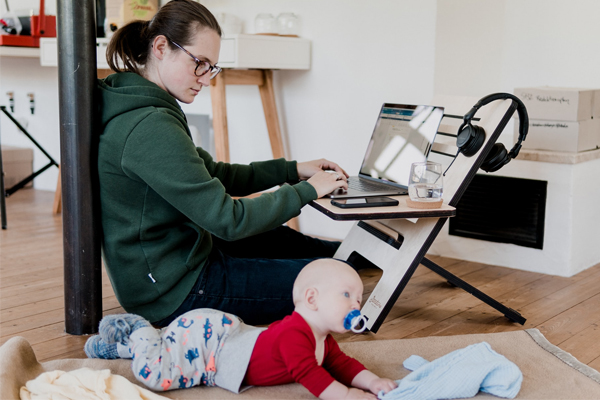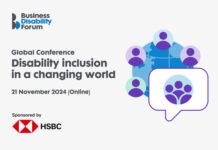Employee job satisfaction is linked to flexible and hybrid working models, according to Hibob’s latest study.
In fact, job satisfaction has returned to pre-pandemic levels as workers have adjusted to the benefits of working from home, according to the people management platform. When asked about overall job satisfaction, the majority of employees said they were highly satisfied with their jobs; 62% of staff, 66% of middle managers and 79% of senior managers. Only 10% of staff surveyed want to return to the office full time; revealing that flexibility to work from anywhere is key.
Approximately 73% of managers said two/three days in the office and the rest working from home would be the preferred hybrid work model; while 54% of staff preferred either a flexible two/three days a week or an “at-will” hybrid model, revealed the report.
WORKING FROM HOME BENEFITS
Additionally, the data revealed that parents and working women preferred working from home at higher rates; as it allows for more time with family and flexibility with childcare. Women are enjoying working from home more than men. In fact, 65% of respondents who preferred a permanent five-day work from home model were female.
The survey also found that 35% of senior managers enjoyed “flexibility with family time” as the best working from home benefit; compared to 42% of staff who felt that eliminating the commute was the biggest perk. Additionally, 84% of parents with children found that the benefits of a hybrid/remote work module outweighed the cons.

FORCED RETURN TO WORK
A forced return to work is a controversial idea, especially for working parents; employees with children are twice as likely to quit and look for a new opportunity if forced to return to an office full-time than those without children, noted the report. Some even say an obligation to return to a physical workspace would push them to look for a new job. In fact, one in three ‘may quit’, if forced to return, according to another study as reported.
With a shift towards hybrid work, the office purpose has also changed. It’s evolving from an everyday work space to a place designated for socialisation, collaboration and company culture. Companies implementing hybrid models may use in-office time more for meetings, get-togethers and onboarding; and less for individual work and clocking in and out. However, how it’s viewed now differs for employees based on their roles. Nearly one-third of individual contributors/staff (30%) ranked socialisation as the most important purpose of the office.
Managers felt that collaboration is the most important purpose of the physical office with 37% of senior managers and 36% of middle managers feeling this way. With ongoing remote work, the allowance of flexible work schedules, the ability to be autonomously productive, and time saved without a commute are contributing and shaping the next normal where a hybrid working model leads the way. The study also revealed that the rollout of the vaccine will “not prompt employees to run back to the office five days a week”.

FLEXIBILITY KEY TO SUCCESS
“There’s been so much emphasis on the vaccine and a ‘return to normalcy’ that is supposed to restore happiness and business as usual. Many companies are failing to see the tremendous benefit that working from home has provided its people; flexibility, work/life balance, adjusted hours and more time with family. Employees have established a strong rhythm with this structure; and it’s going to be really hard to shock people back into the workplace five days a week just because they are vaccinated,” stated Hibob CEO Ronni Zehavi. “Not only has the virtual workplace changed, but the physical workplace will be taking on a new form as we ease back into socialising with others. We should not take a step backwards. Instead, companies must create flexible, hybrid workplaces to keep their employees happy and engaged.”
The survey data proves that flexibility is key to employee success. Even with vaccines helping mitigate safety concerns, they are not a reason for pushing fully in-person work five days a week given the proven success of hybrid models. Those in senior positions skewed more towards advocating for the vaccine and returning to the office. In fact, half of senior managers prefer to require all team members to get the vaccine before coming back to the office; whereas only 26% of staff and middle managers feel this way. More than half of employees (58%) stated that they expect their company not to take any stance on people getting vaccinated. In general, however, more men felt strongly that companies should require all employees to get vaccinated.

PRIORITISING STAFF NEEDS
Vaccination expectations and protocol are going to be difficult to streamline and implement in a way that appeals to all employees. Everyone has a different view on what should/shouldn’t be allowed; and it’s clear that a mandate won’t placate employee concerns and offer the best solution for work/life balance and job satisfaction.
“Hibob’s study proves again what we’ve already known. Flexibility leads to productivity and employee happiness,” concluded Zehavi. “While it may have taken a few months to adjust, the past year has shown that a combination of in-person and remote work has a broad appeal to employees of all job levels, genders and parental standings. Companies need to realise that the next normal is here; and make sure their policies put people first and help them perform at their best.”
Click here for more information.





































